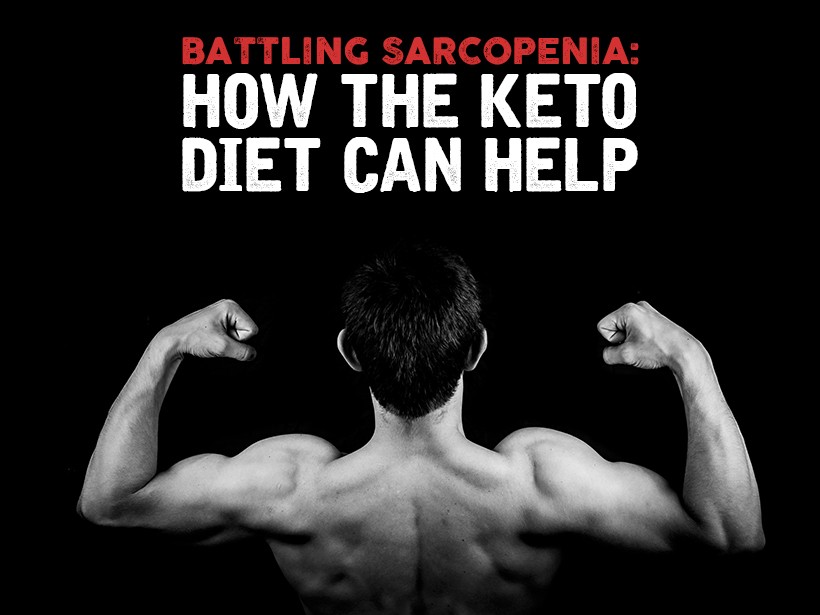As we get older, most men and women find it more and more difficult to stay active and healthy. This lack of activity and nutrition can lead to a condition called sarcopenia, which is the gradual loss of muscle and muscular development as you age.
If you or someone you love is starting to get older and seeing a decline in their energy level and muscle tone, sarcopenia may be the cause. Read on to learn more about what sarcopenia is, how it develops, and how the ketogenic diet may be able to help improve symptoms and muscle development, even as you age.
What is sarcopenia?
Sarcopenia is a natural result of aging which is commonly seen in both men and women after age 65. While there is no specific test that determines the presence and severity of sarcopenia, doctors usually pay very close attention to any form of muscle loss because it can severely affect mobility, energy level, and strength– especially in the vulnerable older community. Older men and women can lose anywhere from 3 to 5 percent of their muscle mass due to sarcopenia, which can make falls more costly and dangerous for elderly populations who live alone.
The main cause behind sarcopenia is a lack of exercise and stamina. Older Americans may have a more difficult time getting enough protein in their diet, which can cause the body to use muscles as a source of protein in later age. Low concentrations of hormones like testosterone and growth-hormone factors can also contribute to the speed at which muscle breaks down.
Can keto help?
The ketogenic diet has been linked to improvement in the major symptoms of sarcopenia. One study found that incorporating a low level of ketosis into the diet of older Americans effectively helped them to prevent the degradation of muscle mass. This was found to be true even when patients were introduced to a low-calorie diet intended to promote weight loss. 1
Researchers attributed this finding to a number of causes. First, the ketogenic diet places a high emphasis on consumption of lean protein from low-carb sources like grilled chicken, salmon, and kale. A general recommendation for adults suffering from sarcopenia is to consume a larger amount of protein to compensate for trouble with amino acid synthesis, so the ketogenic diet's heavy focus on incorporating protein can prevent the breakdown of muscle by ensuring that plenty of protein is available for energy usage. Additionally, the ketogenic diet's large incorporation of healthy fats has been shown to support increased energy levels.2 This is of crucial importance to an older population, as a natural effect of the aging process is a decrease in energy– which can lead to a ripple effect stemming from a lack of exercise.
The next steps
If you or someone that you love is suffering from sarcopenia, there is hope! Start off with a little research into the benefits of the ketogenic diet, and ask your doctor if incorporating keto into your life can help you take back control of your muscles and your body.
NUTRITIONAL DISCLAIMER
The content on this website should not be taken as medical advice and you should ALWAYS consult with your doctor before starting any diet or exercise program. We provide nutritional data for our recipes as a courtesy to our readers. We use Total Keto Diet app software to calculate the nutrition and we remove fiber and sugar alcohols, like erythritol, from the total carbohydrate count to get to the net carb count, as they do not affect your blood glucose levels. You should independently calculate nutritional information on your own and not rely on our data. The website or content herein is not intended to cure, prevent, diagnose or treat any disease. This website shall not be liable for adverse reactions or any other outcome resulting from the use of recipes or recommendations on the Website or actions you take as a result. Any action you take is strictly at your own risk.
- Keto Drives Increased Calorie Burn - July 11, 2019
- New High-Protein, Low-Sugar Greek Yogurt Hits Market - April 1, 2019
- Can Going Low-Carb Fight Back Fat? - December 4, 2018































